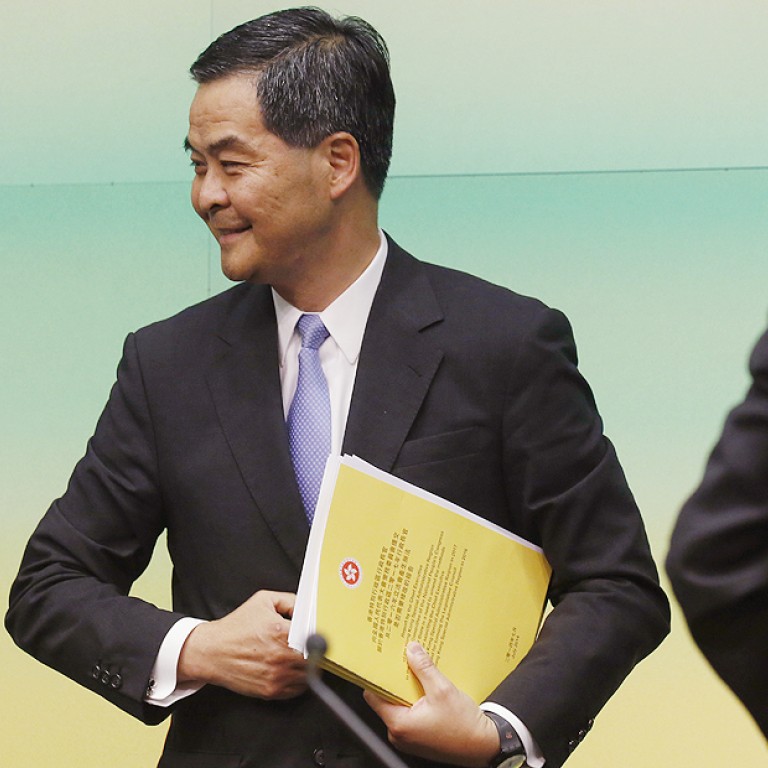
Public opinion hijacked in CY Leung's electoral reform report
Michael C. Davis says Leung's report to the NPC gives ample evidence the government favours a non-democratic model of electoral reform
Reading between the lines of the consultation report and Leung Chun-ying's report to the National People's Congress Standing Committee, it seems clear that the government has all but decided in favour of a non-democratic model for the chief executive election.
Long-expressed establishment-camp positions are given the veneer of public support. With considerable cheek, the government has ticked the boxes in favour of nearly all establishment-camp positions.
First, we are told the "mainstream opinion" is that the power to nominate chief executive candidates is vested in the nominating committee only - a substantial power that should not be bypassed. Other "divergent views," calling for binding civil nominations, are acknowledged but presumably excluded from this "mainstream" view.
Second, "mainstream opinion" is said to agree that nominees should "love the country and love Hong Kong". This is generally viewed as code for excluding pan-democrats as candidates.
Third, we are told of "relatively more views" that the composition of the nominating committee should be decided by the existing method for forming the election committee. This is despite the fact that most pan-democratic proposals have emphasised expanding the committee's electoral base, and that the Basic Law requires the nominating committee to be broadly representative.
Fourth, we are then told of "considerable views" that the number of seats on the nominating committee should be increased. Presumably this would allow a couple of subsectors to be added while keeping the existing subsectors in place and the balance tipped towards the establishment camp.
Fifth, "quite a number of views" are said to suggest that the candidate must obtain the support of a "certain proportion" of nominating committee members to show "cross-sector support" in the committee. This is juxtaposed against the one-eighth threshold supported by "some" views. Is this "certain proportion" one-half of the nominating committee?
Sixth, on the number of candidates, we are told about two major views, with one being to fix the number of candidates at two or three. This, we are told, aims to "ensure the solemnity of the election and allow the voters to have a sufficient understanding of the candidates' manifestos and missions". The "other view" would not limit the number of nominated candidates.
Seventh, we are told that "a number of groups and members of the public" expressed their "divergent" views through different channels. We are not told those "divergent views" come from 800,000 voters in a purely voluntary public referendum and from half a million pro-democracy marchers.
Eighth, we are told it is "generally agreed" that reform of the electoral method for the Legislative Council be dismissed entirely. Years of public protest over this issue are seemingly ignored.
It is not difficult to guess what a government proposal to Legco next year might look like. This model would clearly not give the voters the free choice embodied in the concept of universal suffrage, as required by the Basic Law.

